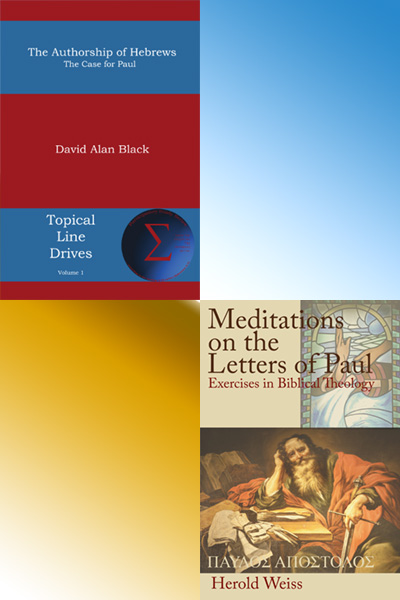Translating Hebrews 2:6-8 – Gender, Number, and Breaking the Discourse
 I’ve written about this a couple of times before, though using the NIV1984 and NIV2011, in A Gender Neutral Example – Hebrews 2:6-8 and Quick Follow-up on Hebrews 2:6-8.
I’ve written about this a couple of times before, though using the NIV1984 and NIV2011, in A Gender Neutral Example – Hebrews 2:6-8 and Quick Follow-up on Hebrews 2:6-8.
I covered most of the key issues in those two short posts, but to summarize quickly, I note the questions of how one should translated the quotation of Psalm 8:4-6 as it is presented in Hebrews 2:6-8. One of the questions is the text. In some cases translators have “corrected” New Testament quotations of Hebrew scriptures by using readings from the Massoretic text even when the NT writer is quoting from the LXX. In this passage “for a little while” gets a footnote to the MT in some translations.
The question for the translator is whether to reconcile the texts, in this case make Hebrews 2:6-8 correspond to the text of Psalm 8:4-6, so that a reader is not confused (or even challenged) by the difference, or whether the texts should be translated faithfully in each instance. In the case of either decision, what should be indicated in the footnotes?
I was reading this passage today in the NRSV, immediately after having read it in Greek. Here it is:
6 But someone has testified somewhere,
“What are human beings that you are mindful of them,
or mortals, that you care for them?
7 You have made them for a little while lower than the angels;
you have crowned them with glory and honor,
8 subjecting all things under their feet.”
In this case there is a footnote (one of several), which reads: ”
Gk or the son of man that you care for him? In the Hebrew of Psalm 8:4-6 both man and son of man refer to all humankind
In fact, the plural continues into the remainder of verse 8, which is not quoted: “Now in subjecting all things to them, God left nothing outside their control.” It is not the authors argument here that everything is placed under the command of humanity in general, but rather of one human being, Jesus. I fully agree with the translators (and their footnote), that Psalm 8 is referring, in its original context, to humankind in general, and our relationship, as a whole, to God—our place in creation.
By translating the quotation “accurately,” as it occurs in a different text and location, the translators have disrupted the discourse of this passage. So while I will not call this an error (it’s certainly intentional, and I can formulate the arguments for doing it, even though I find them dismally unconvincing), I do think it’s a very unfortunate approach. One could let readers know that the quoted text, in its historical context, refers to humanity as a whole, but that it is being used here specifically of one particular human male, Jesus.
In fact, one could argue that acknowledging “humankind” in Psalm 8 need not be inconsistent with the usage here, as we will shortly see the author of Hebrews continue with the argument that Jesus must very much be one of us (humankind) in order to be able to redeem us. One could discuss the idea of being “in Christ,” though that is not the language of Hebrews. In Hebrews the language is one of kinship and community.
I do think that this makes it harder, though not impossible to follow the flow of the authors argument in this passage.




Dismal is definitely the right adjective! The problem goes much further though. It has to do with the individual and the corporate body. The concept occurs frequently in the Old Testament where the individual speaks on behalf of all (Psalms 42-43) or where the individual stands for the entire community (I include Job here but others also may be included). The human recognition of such unity goes with the unity of God. I don’t want to develop this into a dogma to be memorized, but rather a responsibility to be seen. Who is my neighbor? Without spelling it out in so many words, I think I get to this in the new book, The Song in the Night.